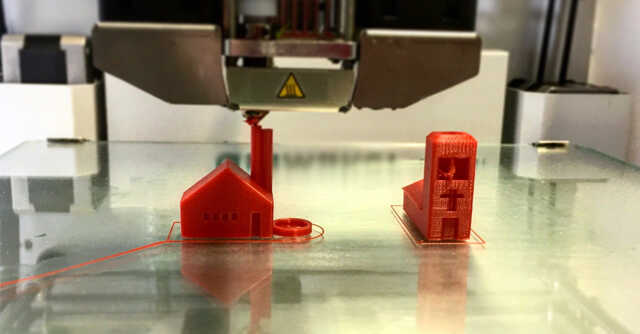
India rolls out national strategy to build ecosystem for 3D printing


The government of India has released a national strategy for additive manufacturing (commonly known as 3D printing) to encourage collaboration between academia, government and industry with the goal of making India a global hub for design, development and deployment of 3D printing, Ministry of Electronics and Information Technology (MeitY) said.
“We have taken some very clearly defined goals in this strategy. We are targeting 50 India specific technologies, 100 new startups, 500 products, 10 existing and new manufacturing sectors and One lakh new skilled manpower. We hope additive manufacturing becomes a major export item in the coming years,” said Ashwini Vaishnav, minister of Railways, Communications, Electronics and Information Technology. Vaishnav was outlining the outcomes of the strategy at the launch.
According to MeitY, the strategy has been released after extensive consultation with industry leaders and subject experts. Ajay Sawhney, secretary MeitY pointed out, at this stage the segment is wide open. Without an effort to build indigenous strength can result in a situation where material, printers and design will continue to come from outside and the country ends up paying large amounts of royalty to foreign companies. “If we are able to build design capability in this segment, it will fetch royalty repeatedly,” he added.

Further emphasizing the importance of a national strategy, Rajeev Chandrasekhar, minister of state, MeitY called this document a leap into a very important strategic area. Chandrasekhar believes India has missed the bus on high precision manufacturing. “But we are at the same stage as the rest of the world in this sector. Additive manufacturing plays to the strengths that India has, which is software, electronics, ESDM and artificial intelligence (AI),” he added.
Chandrashekar said that this is a precise document and focuses on specific objectives which is creating local entrepreneurship, technology and intellectual property in 3d printing.
Industry has appreciated the fact that the government is taking this sector seriously and wants to make it self-sufficient by promoting local development and designing. Swapnil Sansare, founder and chief innovation officer at Divide by Zero Technologies, a Mumbai-based 3D printing manufacturer, points out, “right now 80-85% of the equipment used in 3D printing machines and materials is imported. Growth will only happen if we start making it here. If the government puts effort into supporting manufacturing of local 3d printing machines and materials the adoption rate will dramatically improve.”

A senior industry executive, on condition of anonymity, said the launch of the strategy is an important development and reflects the government’s thought process.
However, he cautioned that this is only a strategy and not a scheme. It only shows the government's intent. “Now we will work on how it can be adopted, what are the challenges, and what more input is required. It will create a new industry for capital equipment. Once we have figured that out, then we will get back to the government and discuss what incentive schemes are required,” he added.
One of the objectives of the strategy is to enhance India's position in the global 3d manufacturing landscape-- achieve a market share of 5% and contribute nearly $1 billion to the GDP by 2025.

The global 3D printing products and services market was valued at $12.6 billion in 2020 and is expected to grow at a compound annual growth rate (CAGR) of 17% between 2020 and 2023, according to Statista, a market research firm.
